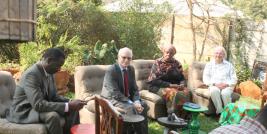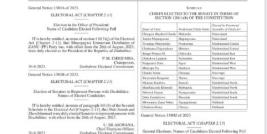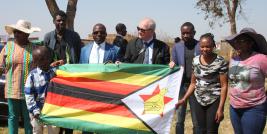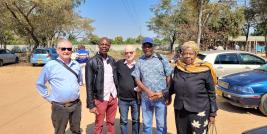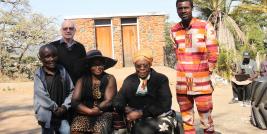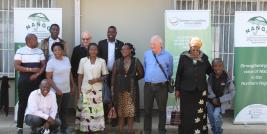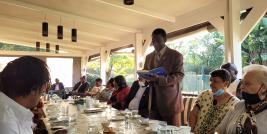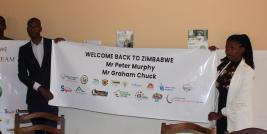Finance Secretary Mthuli Ncube presented the new state Budget on November 22, which can only be described as a harsh austerity budget, tempered only by the promise to pay the 13th month pay within the financial year, a big improvement on past years. Some of the austerity is good – cutting wages to ghost state employees. But most of it will crush down on the people – higher fuel taxes and transaction tax, an end to ‘Command Agriculture’, and an end to state bailout of private companies. Overall, the budget is aimed at convincing the International Monetary Fund and the World Bank that Zimbabwe now has ‘responsible economic management’. Perhaps. But continuing use of Bond Notes and the pretence that a bond note is equal to a US dollar will continue to fuel inflation and undermine any ‘economic credibility’. Domestic backlash is predictable, with teacher demands for wages to be paid in US dollars, and many not being paid at all. At best, the Budget sharpens the begging message to the international community.
Tomorrow, November 29, MDC leader Nelson Chamisa promises to lead a mass protest ‘from the front’ to demand an end to the higher taxes and problems with the cash shortage, but really continuing to assert that he is the rightful President of the country, who must be included in the government.
However, Chamisa has no coherent economic program as an alternative to that of Secretary Ncube. It is also clear that Chamisa is fast running out of legitimacy inside his MDC structure, because he has postponed a Congress to October 2019.
On the other hand, stories that President Mnangagwa is facing a challenge from his vice-President Constantino Chiwenga have been discredited by Chiwenga’s own robust support for Mnangagwa and the lack of the ‘coup’ on the first anniversary of Mugabe’s deposing.
The Election Observer Mission reports from the Commonwealth and the African Union underline the conundrum that the July 30 elections were the best yet experienced in Zimbabwe, but were not good enough, particularly because of the post-election shooting of civilians on August 1. The Commission of Inquiry is proceeding, with some dramatic statements now emerging about how political violence has been organised in the past, and a key witness being abducted.
The new government’s pathway to recovery is signposted by the recommendations of the Observer Missions and the need for a credible outcome of the Commission of Inquiry, as well as more immediate imperative for respect for free speech and assembly and the right to peaceful protest.
Zimbabwe Information Centre Inc
Sydney, Australia. November 28, 2018

